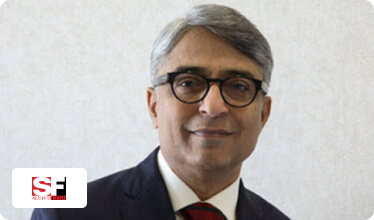Retirement is not renouncing – staying connected with life, love, and living is the key!
The dressing room of the Indian cricket team must have been buzzing with excitement after having sealed the three-match T20i series a match in advance. Sometime around then, a tall cricketing figure appeared, which could only send a new wave of joy in the dressing room. It was none other than the former Indian captain MS Dhoni visiting the Indian Cricket team in London – many of us would have read the news recently.
Dhoni was on a personal visit to London. However, his visit to the Indian dressing room in Edgbaston and the eager, engaged faces of Ishan Kishan and company triggered a chain of thoughts within me. It was about the importance of hanging in there after hanging up the gloves.
On the one hand, retirement is often fantasized about days of leisure and relaxation. However, that’s usually a superficial take for the common person. On the other hand, retirement is often connected to detachment, ceasing worldly stuff, keeping busy with household chores and managing relationships and familial duties. As a result, most of us dread the oblivion which follows.
As a coach, I feel it is essential today that we give thought to our retirement. We must find ways to stay connected with life, love, and the living. We stay associated with the people we love, have worked with, or have bonded with earlier. We remain connected with the living and thriving nature, flora and fauna, and most importantly, the next generations.
Ironically, most people never seem to fight the notion which makes retirement equivalent to oblivion. Retirement is not about renouncing as it is made to be. It indeed involves spending much more time and giving more value to things perhaps less attended during work life. It should be seen as staying connected to the new generation, the youth and younger professionals.
The value of experience is something which one can only earn with time. Passing on the wisdom to the younger generation can be a priceless contribution to the country and society. Sharing one’s experiences is equivalent to passing on the insights – the learning that one cannot get through degrees.
The challenge is in the business of our hectic work life; we never plan for life after retiring. It is ascertaining the life we would like to live. Therefore research suggests that post-retirement, the chances of people going into depression or living in an unplanned manner cannot be ignored.
Being a trained professional, one can help society by teaching and associating with professional forums – an advisory role in your current organization or sector, mentoring professionals, penning down your management and life learnings – be it a blog, book or whitepaper. A deeper and hectic engagement can be a part of board memberships as independent directors, though it comes with specific professional duties and risks.
Whatever one may plan to do, retirement should be seen as a key milestone in our professional life. However, it is not a full stop. Instead, it should be planned as a new beginning where the physical work stress is reduced, and mental and knowledge-led exchanges increase. Research has proven that an active mind helps keep old-age diseases like dementia away and helps lead a healthy and happy life. Remaining connected and engaged are the key.
As the saying goes: You never retire!











